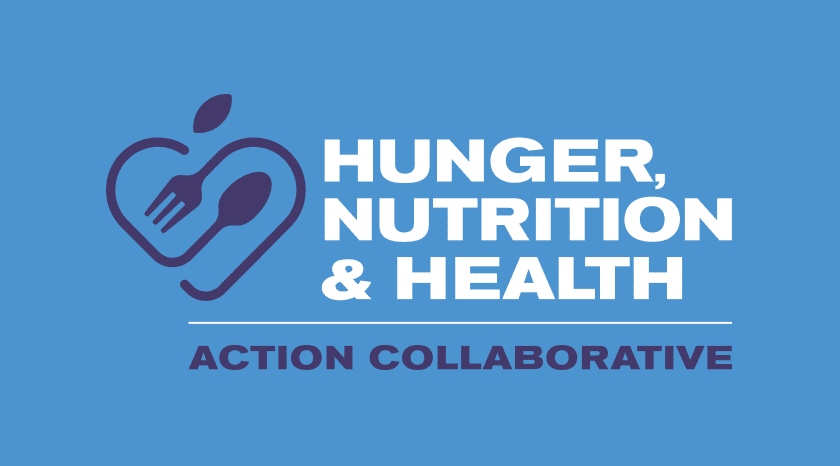
NACDS is calling attention to an article by the Hunger, Nutrition and Health Action Collaborative – an undertaking of the Centers for Disease Control and Prevention (CDC) Foundation.
Importantly, the White House formally recognized NACDS’ commitments to the White House Conference on Hunger, Nutrition, and Health in September 2022 and to the subsequent White House Challenge to End Hunger and Build Healthy Communities in February 2024.
Now, the CDC Foundation – the entity charged with evaluating commitments like NACDS’ – is showcasing the work of NACDS’ Food is Medicine initiatives and the Milken Institute to demonstrate the types of collaboration that are making a difference in the lives of people who experience hunger and food insecurity, and who are on a journey to a healthier life.
Learn more about the CDC Foundation’s Action Collaborative.
Learn more about NACDS’ vision for the future of retail health.
Read the CDC Foundation article in its entirety below:
Building A Successful Partnership Starts with a Shared Vision
During the inaugural 2022 White House Conference on Hunger, Nutrition, and Health, the National Association of Chain Drug Stores (NACDS) and the Milken Institute made a worthwhile and serendipitous connection, just by sitting next to each other at a satellite event for the conference.
Both NACDS and the Milken Institute’s Feeding Change (Feeding Change), shared a common vision to make Food Is Medicine easily accessible to all. Together, with NACDS’ expertise on pharmacies and Feeding Change’s expertise on food systems, the opportunity to explore how pharmacies could be leveraged to advance access to Food Is Medicine became a natural fit for collaboration. NACDS believed in the power and potential of pharmacies to bring nutrition interventions to scale — like the much-needed care pharmacies provided during the pandemic, most notably scaling to give 340 million COVID-19 vaccinations to Americans.
At the same time, Feeding Change’s familiarity with how stakeholders work together in the Food Is Medicine space was essential to evaluating the role of pharmacies in this space. “From the very start, we bonded over our shared commitment to advancing public health — and moving fast to drive toward positive change,” said NACDS President and Chief Executive Officer Steven C. Anderson, FASAE, CAE, IOM. “It was very clear early on that we had aligned goals — we wanted to fill a gap in what had been studied and implemented to date.”
The two organizations ultimately decided to collaborate on a joint commitment for the White House Challenge to End Hunger and Build Healthy Communities to build a movement where pharmacists are key care partners in improving health across communities by facilitating nutrition security. As part of this commitment, Feeding Change, with support from NACDS, released a report in June 2024, “Catalyzing Action for Pharmacist-Provided Food Is Medicine Care”, providing background, insights, and actionable recommendations for pharmacies and key stakeholders, including policymakers, and the public and private sectors, to deliver Food Is Medicine care. This Action Plan offers 12 recommendations, supported by 34 actions, that would facilitate the integration of pharmacies and pharmacists into a patient’s care team to improve the impact of these interventions.
“This partnership underscored the many different benefits of organizations coming together with a shared goal and synergizing complementary networks,” said Holly Freishtat, the senior director of the Milken Institute’s Feeding Change. “It’s been phenomenal! We started off with a project and now we have built a long-term relationship with more opportunities to collaborate, now and into the future.”
The NACDS and Milken Institute are continuing to work together, including on a new project to explore opportunities to accelerate sustainable pharmacy-based care models to advance public health.
NACDS is also leading a consumer-oriented initiative — a public education campaign, #NourishMyHealth (www.nourishmyhealth.org),that highlights the connection between food and health, urging Americans to get baseline health screenings and increase their intake of nutritious foods. The campaign has garnered 180 million impressions and nearly 11,000 responses to a nutrition security screener through engagement of key partners, including national health organizations and NACDS member pharmacies.
It takes many different partners across sectors to make change possible. The CDC Foundation’s Hunger, Nutrition and Health Action Collaborative aims to foster more synergistic partnerships like this that will continue to build healthy communities, fight hunger, and improve nutrition in the United States.
“Collaboration among all stakeholders is about building a movement, and bringing together these two important networks accomplished that for the role of pharmacies in Food Is Medicine,” Freishtat said. “The Hunger, Nutrition and Health Action Collaborative has the potential to launch many more movements.”
For more information, please visit: Catalyzing Action for Pharmacist-Provided Food Is Medicine Care | Milken Institute